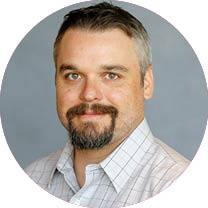More than 20 residents of the Homestead neighborhood in Bee Cave spoke passionately at the Jan. 22 City Council meeting against a proposed county bridge. The bridge is the most recent offering from Travis County Commissioner Gerald Daugherty regarding a solution to what some officials call a dangerous low-water crossing in the area.
The public comment period was largely a declaration against the proposed bridge on Great Divide Drive. Though at least one Homestead resident said he is in favor of a bridge, for the most part the nearly hourlong train of commentary exhibited a unified front, causing attendee applause after several people spoke.
Resident outcry to city officials came following the Jan. 5 issuance of a memo from Travis County Precinct 3 Commissioner Gerald Daugherty informing residents they will be choosing whether or not the county should allocate what is now up to $6.2 million for the bridge from a $185 million 2017 bond package.
Daugherty said last week the cost of the bridge, which is not final, has climbed so high due to recommendations based on data recently issued by the National Oceanic and Atmospheric Administration through a historical rainfall study called Atlas 14, which has redesignated 500-year flood plains as 100-year flood plains.
Morgan Bender is a member of grassroots committee Don’t Bridge the Great Divide, which is canvassing Homestead residents ahead of a Feb. 5 Travis County Commissioners meeting that could see action on whether or not to proceed with the bridge. On Jan. 22, Bender said residents such as her are still for a solution to the low-water crossing, but not the one proposed by Daugherty.
Many Homestead residents have
already spoken out against the one-size-bridge-or-nothing option with which they’ve been presented, saying it is too invasive, and the public comment session showed no deviation from that sentiment.
Homestead resident Katie Clawson said she owns a home the proposed bridge would pass alongside.
“I want to let it be known that I absolutely do not want that huge overpass next to my home,” Clawson said, adding the vast majority of homeowners in her neighborhood share her feelings on the matter.
Other residents said the proposed bridge feels overwhelming, and it would be like driving over a highway and therefore antithetical to neighborhood's spirit of rural living. Another resident said it seems like there are other influences at play for officials advocating for the bridge, and it is not a pressing need.
Homestead residents also spoke about safety concerns, worries about their property devaluation, possible damage done to the natural flora and fauna habitat of the area, misappropriation of county funds for an unwanted and unneeded bridge, and even potential ice hazards that could emerge from the new infrastructure.
Still other residents said the data provided by Atlas 14 that helped inform the scope of the proposed bridge are overstated, and there hasn't been one traffic-related injury in 40 years at that low-water crossing.
Of the 22 people who spoke before council, Homestead resident James Cook was the only one who said he is in favor of a bridge, and whether homeowners like it or not, Travis County still owns the land where the low-water crossing sits. This is an issue to take up with the county, Cook said, not the city of Bee Cave.
“The fact is you’re going to get this bridge, accept it for what it is and live life,” Cook said, adding the best option right now is to work with county officials to get the best option possible.
Council Member Marie Lowman, speaking as a private citizen, took the podium during public comment and for much of her address spoke directly to Mayor Monty Parker. Lowman urged Parker to redirect his traffic advocacy on more dangerous traffic areas nearby.
“May I suggest you direct your efforts toward making the most dangerous intersection in our city: the intersection of Hwy. 71 and Hamilton Pool Road, the scene of 66 accidents in 2018 alone, a mere 4,200 feet from this accident-free low-water crossing, the focus of your safety efforts?” Lowman said. “That will benefit all residents and the 40,000 vehicles who pass through our city every day.”





